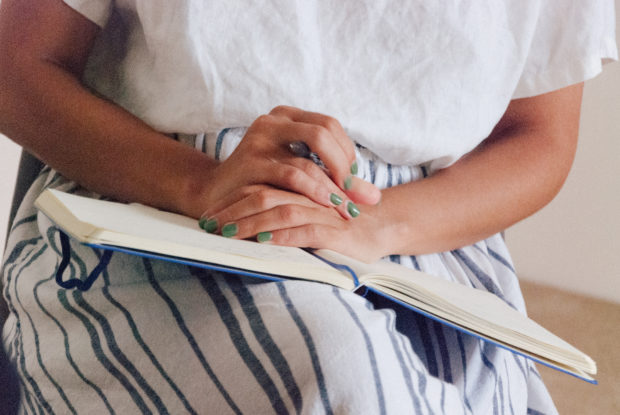Educators on managing their mental health at #StartANewDay forum
The uncertainty brought about by COVID-19 does not just affect students, it takes a toll on their teachers’ mental health as well.
This was a concern raised by Rolyn Cantanus-Gantalao, an elementary school teacher from the Department of Education (DepEd) Region VII. In the second installment of Inquirer and Globe’s #StartANewDay webinar series, she shared how educators felt just as unprepared as their students when year-end school activities such as graduation and recognition ceremonies got canceled during the lockdown.
“As teachers, it’s heartbreaking for us that they won’t be able to experience these things that they’ve anticipated for the entire year,” Gantalao said. “What breaks their hearts breaks ours also; we, teachers, feel helpless because we feel like we can’t do anything to help them at this point.”
DepEd Region VII director Dr. Salustiano Jimenez also shared the challenges that school officials in the department face to ensure that any teaching and non-teaching personnel are coping with the pandemic well.
Article continues after this advertisement“One of my personal challenges is the pressure of resolving day-to-day concerns at work and many office meetings, sometimes resulting in body pains, just as the city deals with the pandemic and the extension of the enhanced community quarantine,” Jimenez added.
Article continues after this advertisementIn response to these concerns, Philippine Mental Health Association (PMHA) national executive director Dr. Carolina Uno-Rayco shared coping mechanisms and resources that educators can keep in mind as they adjust to new learning systems.

Clockwise from left: Sitti Navarro-Ramirez, host; Issa Dela Cruz, Program Manager of PMHA’s primary program Education Advocacy and Research Department; Dr. Carolina Uno-Rayco, National Executive Director of PMHA; Rolyn Gantalao, Elementary School Teacher III at Zamboanguita Central Elementary School; and RD Salustiano T. Jimenez, Director III and Officer-in-Charge of the Office of the Regional Director of the Department of Education–Region VII
Set aside a designated workspace and time
One of the factors affecting educators’ mental health is a lack of work-life balance because they no longer have separate physical spaces for work and home responsibilities. As they try to respond to everyone’s needs, they may develop a mindset that leans on toxic productivity—an unhealthy obsession with accomplishing tasks to the detriment of their wellbeing.
To remedy this, Dr. Uno-Rayco recommended the following: Create a designated workspace at home, let your family know not to disturb you when you are in your work area. “Eto yung physical space and psychological space, alam mo sa sarili mo, that during this time during this period ‘I am here, I am working and I will do things that are related to work,’” she explained.
Knowing when to stop
Aside from setting aside a designated workspace, Dr. Uno-Rayco also stressed the importance of being mindful and respecting the boundaries that educators have established for themselves. “Minsan, kapag we are so engrossed in what we are doing, we want to finish everything, nag-o-over na tayo and nawawala yung work-life balance,” she explained.
To avoid feeling overwhelmed, she recommends prioritizing tasks for the day and rewarding yourself when they’re completed. When a task isn’t completed within the day, Dr. Uno-Rayco notes that this should not be an excuse to go beyond your set working time.
Being kind to oneself
In setting boundaries for themselves, Dr. Uno-Rayco reminded educators to be kind to themselves and set realistic expectations. “We cannot expect ourselves to be as productive as we were pre-pandemic times,” she explained. “This is not just normal stress of life, it’s a pandemic affecting everyone globally.”
Another way to be kind to oneself is to seek out positive experiences. To achieve this, Dr. Uno-Rayco recommended using the positivity ratio: when you experience more positive emotions than negative emotions, educators can enter an upward spiral of growth. It also helps to develop a mantra they can repeat before starting the day.
Reach out for help
For educators who need professional support, they can also reach out to mental helpline numbers. These numbers are available 24/7:
- Hopeline – 2919 (toll-free for Globe/TM)
- National Center for Mental Health – 0917-899USAP (8727) or 0917-989USAP (8727)
- UP Diliman PsycServ – 0906-3743466 or 0916-7573157 (to schedule free telepsychotherapy)
- KonsultaMD -Call 7-8990 (for mobile) or 7789-8800 (toll-free landline for Globe/TM)
- Philippine Mental Health Association (PMHA) – 0917-5652036 (for the Clinical and Intervention Services Department)
They can also join the Hope Bank community, an online safe space for anyone trying to cope with the emotional and mental challenges caused by COVID-19, and see messages of hope and inspiration every day.
